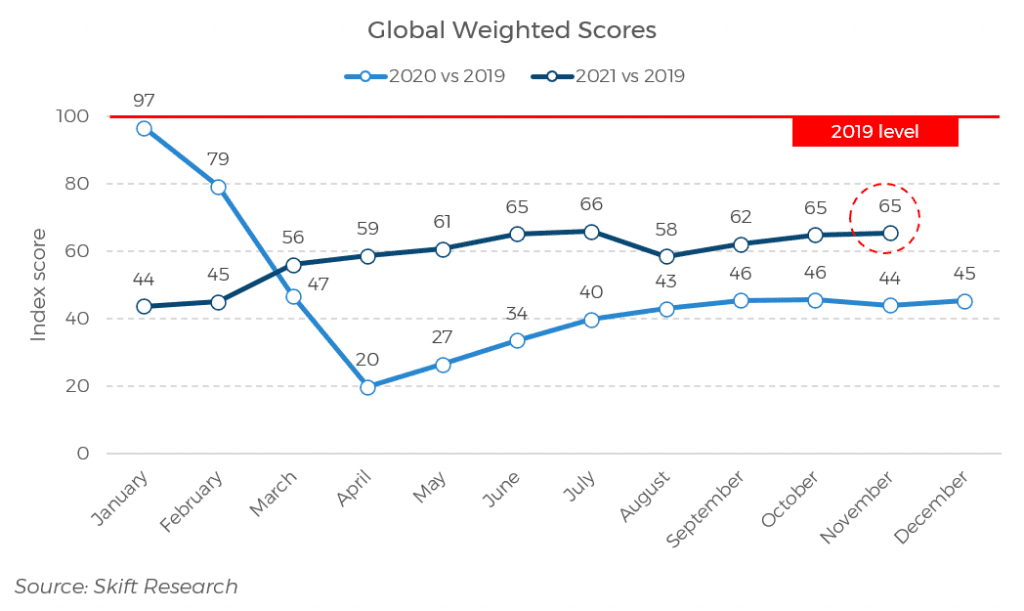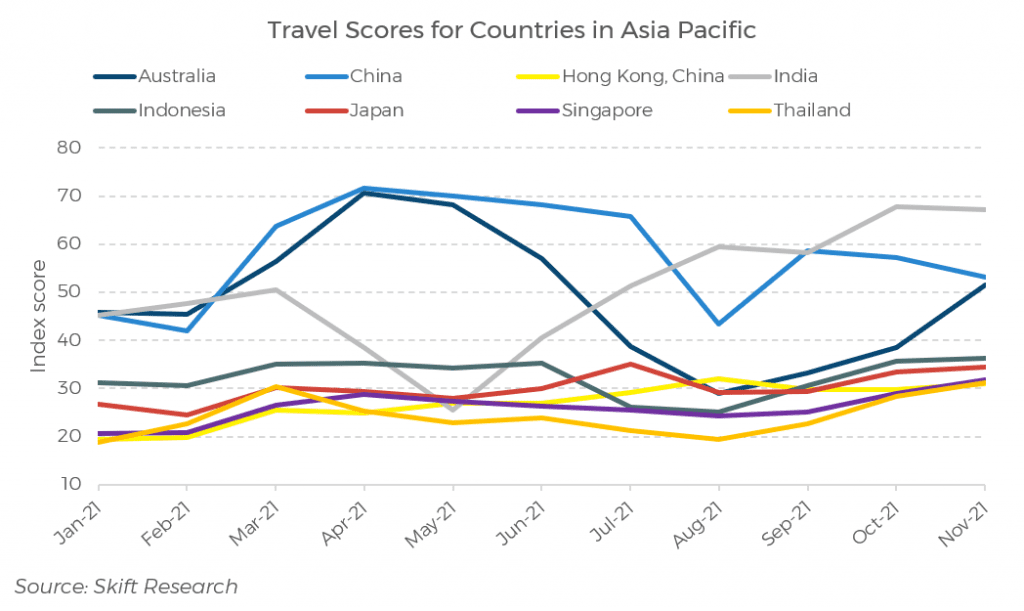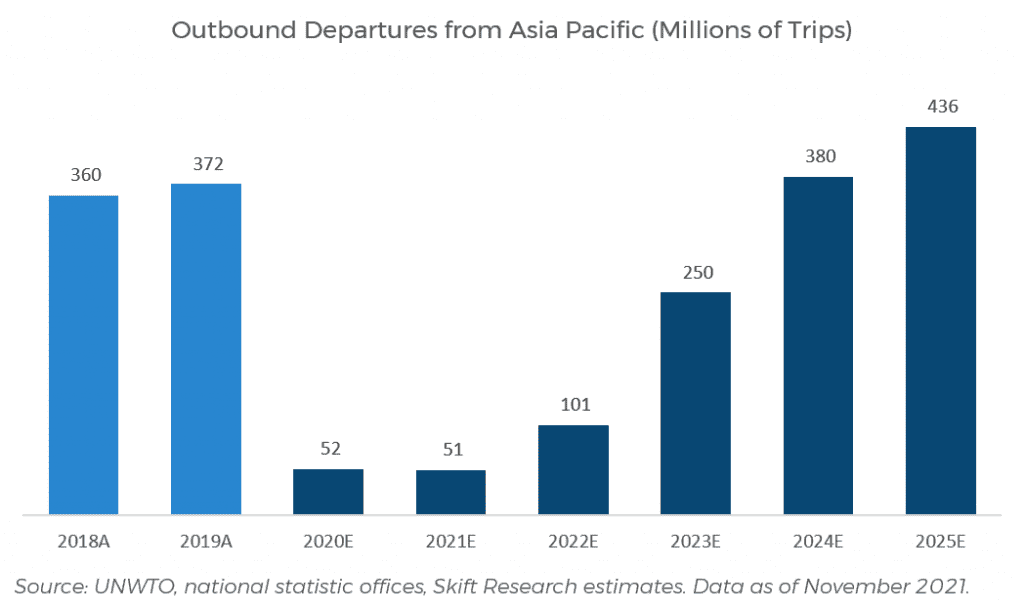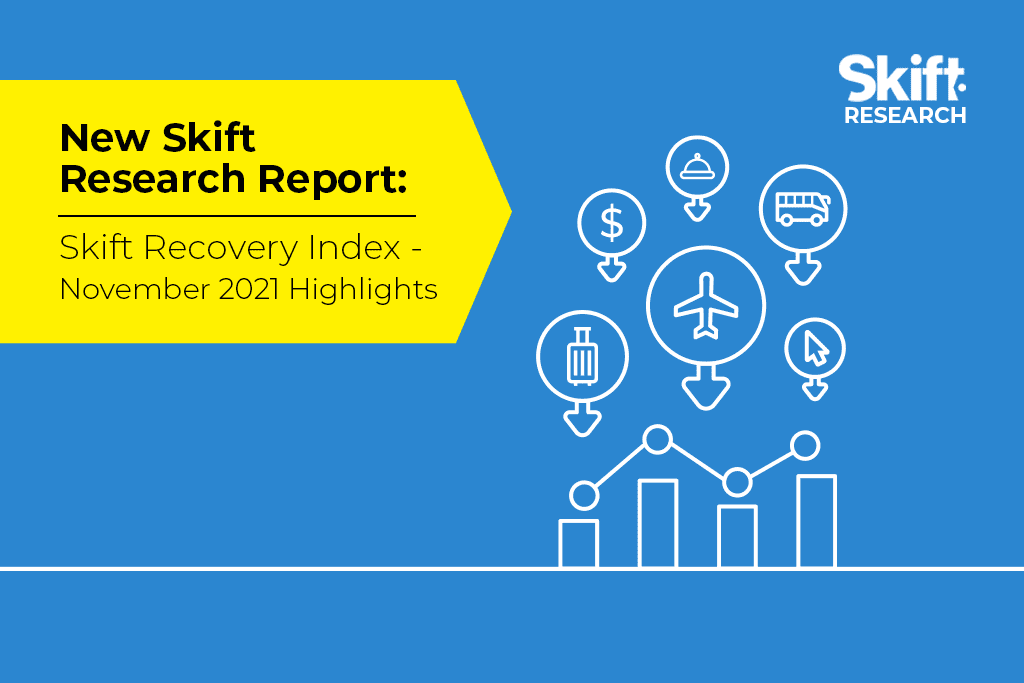Skift Take
There is still so much uncertainty around the Omicron variant, but already much needed recovery in Asia Pacific is stalling as reopenings are postponed.
The latest November data from the Skift Recovery Index does not show a strong impact of the Omicron variant yet. However, South Africa registered a decline as its travel industry came to an almost complete halt in the final days of November. December will likely see this decline spread to other countries.

The Omicron scare comes especially at an inopportune time for countries in Asia Pacific. With the exception of China, which is now the only country which still seems committed to the zero-Covid strategy, countries in the region saw a lot of optimism at the beginning of November. Borders were being reopened, travel lanes installed, testing requirements relaxed.
At the beginning of the month, Japan announced it would start to allow fully vaccinated short-term travelers and foreign laborers into the country, but at the end of the month the government closed its borders to all foreigners again, citing Omicron.
Singapore, which had seen a push to open up since October, and made announcements of a land and air border reopening with neighboring Malaysia, rolled back plans for a Vaccinated Travel Lane with Qatar, Saudi Arabia and the United Arab Emirates.
Thailand also halted the planned rollout of relaxed testing requirements as the Omicron fears took hold.

Reports indicate that before the end of the year the land border between China and Hong Kong will be reopened for vaccinated travelers, with no need for quarantine, although the impact of Omicron on this decision is as of yet unclear, as the first case of the virus was detected in China. It is understood that China is working towards a full reopening by the middle of 2022, with month over month performance in our Index down in November. The country and region will need this to see any form of tourism recovery, with Chinese travelers an important source market for many Asian destinations.
Australia seems to be the only country that was able to escape the downward spiral, registering a major dip in performance over the past months amid rising cases, but seeing strong growth in November as the country started its phased reopening. The country’s flag carrier Qantas Airways noted a considerable increase in demand since the reopening was announced.
In these uncertain times, however, any boost in performance seems to be followed by a setback, and in the case of Australia this was the announcement by the New Zealand government that the country will not reopen until at least April 2022 for foreign travelers, with Air New Zealand cancelling more than 1,000 flights after the announcement. As an important source market to Australia, this will be felt for months to come.
According to Skift Research analysis, as published in our Global Travel Outlook 2022 report, Asia Pacific was the hardest hit region in terms of international travel movement, with outbound departures declining from 372 million in 2019, to 52 million in 2020, and expected to remain almost stable at 51 million in 2021. If border reopenings come back on the agenda (with the impact of Omicron hopefully subdued), it is likely that Asia Pacific will see strong growth in outbound departures in 2022 and beyond.

Get Skift Research
Skift Research products provide deep analysis, data, and expert research on the companies and trends that are shaping the future of travel.
Have a confidential tip for Skift? Get in touch
Tags: asia pacific, covid-19, skift recovery index, skift research

